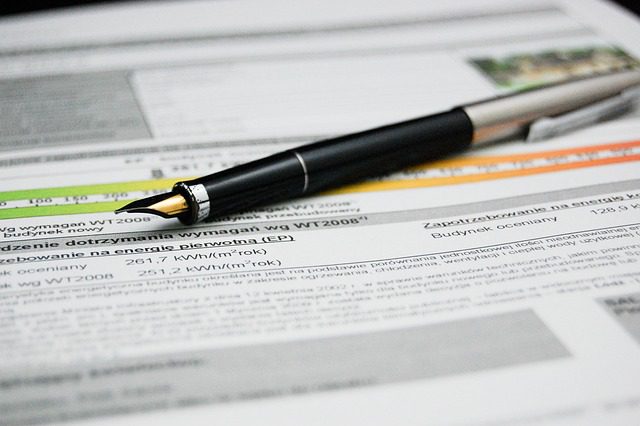The benefits of medical coding for healthcare providers
Did you know that medical coding can significantly impact the financial health of your healthcare practice? From improving patient outcomes to minimizing legal risks, medical coding is a game-changer for healthcare providers.
Medical coding is an essential aspect of healthcare that often goes unnoticed by patients. However, medical coding is an integral part of healthcare providers’ operations, allowing them to manage their revenue cycle, ensure compliance with regulations, and provide optimal patient care.
In this blog post, we’ll explore the benefits of medical coding for healthcare providers and how it can impact their practice. From improved revenue cycle management to enhanced patient care, we’ll examine the advantages of medical coding in healthcare practice.
So, whether you’re a healthcare provider looking to improve your practice’s efficiency or a medical coder seeking to expand your knowledge, this post is for you. Let’s dive in and explore the world of medical coding and its benefits of medical coding for healthcare providers!
What is medical coding?
Medical coding is assigning specific codes to medical procedures and diagnoses, allowing healthcare providers to keep track of patient information, manage their revenue cycle, and comply with regulatory requirements. Medical coders use standardized classification systems such as ICD-10, CPT, and HCPCS to translate medical information into codes that are recognized by insurance companies and government programs.
These codes are used to create medical claims and bills that are submitted for reimbursement. Accurate medical coding is crucial for healthcare providers as it ensures that they are properly reimbursed for their services and enables them to provide optimal patient care.
Importance of medical coding in the healthcare industry

Medical coding plays a vital role in the healthcare industry as it allows healthcare providers to accurately record and organize patient information, manage their revenue cycle, and comply with regulatory requirements. The use of standardized coding systems such as ICD-10, CPT, and HCPCS enables healthcare providers to efficiently and effectively communicate medical information with insurance companies, government programs, and other healthcare professionals.
Accurate medical coding ensures that healthcare providers are reimbursed appropriately for their services, reducing the risk of revenue loss and claim denials. It also enables healthcare providers to create comprehensive patient records, which are critical for providing high-quality patient care.
Compliance with coding guidelines and regulations such as HIPAA is essential to minimizing legal and financial risks for healthcare providers. Overall, medical coding is an essential aspect of the healthcare industry that plays a crucial role in ensuring efficient operations and optimal patient care.
Role of Medical Coders in Healthcare
Duties of medical coders
The primary duty of Medical coders are to assign specific codes to medical diagnoses, procedures, and treatments. They play a critical role in the healthcare industry by ensuring that patient information is accurately recorded and communicated. Some of the key duties of medical coders include:
- Reviewing medical records: Medical coders are responsible for reviewing medical records to ensure that all procedures and diagnoses are accurately documented.
- Assigning codes: Once medical coders have reviewed medical records, they assign specific codes to procedures and diagnoses based on standardized classification systems such as ICD-10, CPT, and HCPCS.
- Ensuring accuracy: Medical coders must ensure that codes are accurately assigned, and any discrepancies or errors are corrected promptly.
- Compliance: Medical coders must be familiar with coding guidelines and regulations such as HIPAA and ensure compliance with these regulations.
- Communication: Medical coders communicate with healthcare providers, insurance companies, and government programs to ensure that medical claims and bills are accurately processed.
- Continuous education: Medical coders must stay up to date with changes to coding systems and regulations through ongoing education and training.
Overall, the duties of medical coders are essential to the healthcare industry, as they ensure accurate medical records, efficient revenue cycle management, and compliance with regulations.
Importance of accurate medical coding
Accurate medical coding is crucial in the healthcare industry for several reasons:
- Proper reimbursement: Accurate medical coding ensures that healthcare providers are reimbursed appropriately for their services. Incorrect codes or documentation can lead to claim denials, delayed payments, and revenue loss.
- Regulatory compliance: Compliance with coding guidelines and regulations such as HIPAA is essential for healthcare providers to minimize legal and financial risks.
- Effective communication: Accurate medical coding allows healthcare providers to efficiently communicate medical information with insurance companies, government programs, and other healthcare professionals, which ensures the continuity of patient care.
- Improved patient care: Accurate medical coding helps healthcare providers to create comprehensive and accurate patient records, which are critical for providing high-quality patient care. Accurate documentation of patient diagnoses and treatments ensures that healthcare providers have access to complete and up-to-date patient information, leading to improved patient outcomes.
- Research and analysis: Medical coding allows for the collection and analysis of healthcare data, which is essential for identifying trends, assessing treatment effectiveness, and developing new medical strategies.
Overall, accurate medical coding is essential to the effective functioning of the healthcare industry, enabling healthcare providers to manage their revenue cycle, comply with regulations, provide optimal patient care, and advance medical research.
Impact of incorrect coding on healthcare providers
Incorrect coding can have a significant impact on healthcare providers in several ways:
- Financial impact: Incorrect coding can lead to claim denials or delayed payments, resulting in revenue loss for healthcare providers. In some cases, incorrect coding can also result in penalties or fines.
- Compliance risks: Incorrect coding can result in non-compliance with coding guidelines and regulations, which can lead to legal and financial risks for healthcare providers.
- Reputation: Incorrect coding can result in inaccuracies in patient records, which can harm the reputation of healthcare providers and impact patient trust.
- Patient outcomes: Incorrect coding can lead to inaccurate patient records, which can impact the quality of patient care. This can result in longer hospital stays, delayed treatments, and potential harm to patients.
- Research and analysis: Incorrect coding can result in inaccurate healthcare data, which can impact research and analysis of healthcare trends and treatments.
Overall, the impact of incorrect coding on healthcare providers can be significant, affecting their revenue cycle management, compliance risks, reputation, patient outcomes, and healthcare data analysis. It is essential for healthcare providers to prioritize accurate coding to ensure optimal patient care and efficient operations.
Benefits of Medical Coding for Healthcare Providers

Accurate documentation
Medical coding ensures accurate documentation of medical diagnoses, treatments, and procedures. Accurate documentation is critical for providing high-quality patient care, ensuring continuity of care, and enabling healthcare providers to effectively communicate medical information with insurance companies, government programs, and other healthcare professionals.
Improved decision-making
Medical coding provides healthcare providers with accurate and up-to-date medical data, which is essential for making informed decisions about patient care and treatment plans. Healthcare providers can use medical coding data to monitor and improve the quality of care they provide, identify gaps in care, and develop effective treatment plans.
Enhanced communication
Medical coding enables efficient communication between healthcare providers, insurance companies, and government programs. Accurate medical coding ensures that medical claims and bills are accurately processed and paid, leading to better patient care and efficient operations. Medical coding also allows healthcare providers to share medical data securely and efficiently, improving patient outcomes and enhancing the quality of care.
Improved research and analysis
Medical coding allows for the collection and analysis of healthcare data, which is essential for identifying trends, assessing treatment effectiveness, and developing new medical strategies. Medical coding data can help healthcare providers to develop and implement evidence-based treatments and improve patient outcomes.
Increased efficiency
Medical coding streamlines healthcare operations by reducing the need for manual data entry and paperwork. Automated coding systems reduce errors and improve accuracy, saving healthcare providers time and resources.
Improved patient safety
Accurate medical coding improves patient safety by reducing the risk of medical errors, such as administering incorrect treatments or medications. By providing accurate and up-to-date medical information, medical coding ensures that healthcare providers are able to make informed decisions about patient care.
Better resource allocation
Medical coding allows healthcare providers to track the utilization of resources, such as hospital beds, staff, and equipment. By identifying patterns and trends, healthcare providers can allocate resources more effectively, improving patient outcomes and reducing waste.
Enhanced patient experience
Accurate medical coding improves the patient experience by reducing billing errors, minimizing wait times for treatment, and improving the quality of care provided. By ensuring that medical bills are accurate and processed efficiently, patients are less likely to experience stress or confusion about their medical bills.
Competitive advantage
Healthcare providers that prioritize accurate medical coding and revenue cycle management have a competitive advantage in the healthcare industry. Efficient revenue cycle management and compliance with regulations can lead to better financial performance, higher patient satisfaction, and improved healthcare outcomes.
Improved data privacy and security
Medical coding ensures that medical data is shared securely and confidentially, protecting patient privacy and reducing the risk of data breaches. By adhering to coding guidelines and regulations, healthcare providers can ensure that patient data is protected and used appropriately.
Efficient revenue cycle management
Medical coding helps healthcare providers manage their revenue cycle effectively by ensuring timely and accurate billing and reimbursement. Accurate coding minimizes the risk of claim denials, delayed payments, and revenue loss. Healthcare providers can also use medical coding data to monitor and improve their financial performance.
Compliance with regulations
Compliance with coding guidelines and regulations such as HIPAA is essential for healthcare providers to minimize legal and financial risks. Medical coding ensures compliance with these regulations and reduces the risk of non-compliance penalties and fines.
Better analytics
Medical coding provides data that can be used for analytics and performance improvement. Healthcare providers can use coding data to identify trends, track performance, and improve patient outcomes.
Career opportunities
Medical coding offers career opportunities for individuals with the necessary skills and training. Medical coders are in high demand, and the demand is expected to continue to grow as the healthcare industry expands.
Improved population health management
Medical coding data can be used to identify trends and patterns in population health, leading to improvements in healthcare delivery and disease prevention.
Medical Coding Training and Certification

Requirements for medical coders
Medical coding is a critical component of the healthcare industry, and medical coders play an important role in ensuring accurate coding and billing for medical services. Here are some of the requirements for medical coders in the healthcare industry:
- Education: Medical coders typically need a high school diploma or equivalent, as well as training in medical coding. This can include a certificate program or an associate’s degree in medical coding.
- Certification: Many employers require medical coders to have certification in medical coding from organizations such as the American Health Information Management Association (AHIMA) or the American Academy of Professional Coders (AAPC).
- Knowledge of medical terminology: Medical coders need a strong understanding of medical terminology, anatomy, and physiology in order to accurately code medical services.
- Knowledge of coding systems: Medical coders need to be familiar with coding systems such as ICD-10-CM, CPT, and HCPCS Level II.
- Attention to detail: Medical coders need to be detail-oriented and accurate in their work, as errors in coding can lead to billing errors and potential legal issues.
- Analytical skills: Medical coders need to be able to analyze medical records and documentation in order to accurately code medical services.
- Communication skills: Medical coders need to be able to communicate effectively with healthcare providers, insurance companies, and patients in order to ensure accurate billing and reimbursement.
- Technical skills: Medical coders need to be familiar with computer systems and software used for medical coding and billing.
Overall, medical coders play a crucial role in the healthcare industry and require a combination of education, certification, technical skills, and attention to detail in order to perform their job effectively.
Benefits of medical coding certification for medical coders
Certification in medical coding can provide numerous benefits for medical coders in the healthcare industry. Here are some of the benefits of medical coding certification for medical coders:
- Professional recognition: Certification in medical coding demonstrates a level of expertise and knowledge in the field, and can provide professional recognition and credibility among employers and peers.
- Competitive edge: Certification can provide a competitive edge in the job market, as many employers require or prefer certified medical coders.
- Career advancement: Certification can open up opportunities for career advancement and higher-paying positions within the healthcare industry.
- Up-to-date knowledge: Certification programs often require ongoing education and training to maintain certification, which helps medical coders stay current with the latest coding systems and regulations.
- Improved accuracy: Certification programs emphasize the importance of accuracy and attention to detail in medical coding, which can lead to fewer errors and more accurate billing and reimbursement.
- Networking opportunities: Certification programs often provide networking opportunities with other medical coders and professionals in the healthcare industry, which can lead to new job opportunities or professional connections.
Overall, certification in medical coding can provide numerous benefits of medical coding for medical coders in the healthcare industry, including professional recognition, career advancement, up-to-date knowledge, and improved accuracy.
Implementing Medical Coding in Healthcare Practice

Strategies for successful implementation
Successfully implementing medical coding in healthcare practice requires careful planning and consideration. Here are some strategies for the successful implementation of medical coding in healthcare practice:
- Training and education: Healthcare providers and staff need to be trained on medical coding and its importance in accurate billing and reimbursement. This can include training sessions, workshops, and continuing education programs.
- Efficient documentation: Accurate medical coding relies on efficient documentation practices. Healthcare providers and staff should be trained on proper documentation practices to ensure accurate coding.
- Collaboration and communication: Successful implementation of medical coding requires collaboration and communication between healthcare providers, medical coders, and billing staff. Clear communication channels and protocols should be established to ensure accurate coding and billing.
- Technology integration: The integration of technology, such as electronic health records (EHRs), can streamline medical coding and billing processes. Healthcare practices should invest in technology that supports efficient coding and billing practices.
- Quality assurance: Regular quality assurance checks should be conducted to ensure accurate coding and billing. This can include audits of medical records and coding processes to identify and correct errors.
- Compliance with regulations: Healthcare practices need to comply with coding and billing regulations, such as those set by the Centers for Medicare & Medicaid Services (CMS) and the Health Insurance Portability and Accountability Act (HIPAA). Compliance with these regulations helps ensure accurate billing and avoids legal issues.
- Ongoing training and education: Medical coding practices and regulations are constantly changing. Ongoing training and education for healthcare providers, medical coders, and billing staff is essential for successful implementation of medical coding in healthcare practice.
Overall, successful implementation of medical coding in healthcare practice requires a combination of education, collaboration, technology, quality assurance, compliance with regulations, and ongoing training and education.
Challenges in implementing medical coding
Implementing medical coding in healthcare practice can present various challenges. Here are some common challenges that healthcare providers and organizations may face in implementing medical coding:
- Lack of training and education: Medical coding requires specialized knowledge and skills that may not be present in healthcare providers and staff. Lack of training and education on medical coding can lead to inaccurate coding, billing errors, and compliance issues.
- Time and resource constraints: Implementing medical coding can be a time-consuming process, and may require additional resources and staff to manage the coding and billing processes. Healthcare organizations may struggle to balance the demands of medical coding with other operational priorities.
- Technology limitations: Technology plays an important role in medical coding and billing processes, but healthcare organizations may face challenges in implementing and integrating technology into their systems. This can include limitations in EHR systems or a lack of access to necessary coding software.
- Changing coding systems: The healthcare industry is constantly changing, and medical coding systems are no exception. Keeping up with new coding systems and regulations can be challenging for healthcare organizations, requiring ongoing training and education for staff.
- Compliance with regulations: Compliance with coding and billing regulations, such as those set by CMS and HIPAA, is critical for avoiding legal issues and ensuring accurate billing. However, healthcare organizations may struggle to stay up-to-date with changing regulations, leading to compliance issues and potential penalties.
- Staff turnover: High turnover rates among medical coders and billing staff can create challenges in maintaining consistent and accurate coding practices. New staff members may require additional training and education to ensure proper coding practices.
Overall, implementing medical coding in healthcare practice can present various challenges related to training and education, time and resources, technology, changing coding systems, compliance with regulations, and staff turnover. Addressing these challenges requires careful planning, ongoing training and education, and effective communication and collaboration among healthcare providers and staff.
Final thoughts
Implementing medical coding in healthcare practice can be a challenging process, but the benefits of medical coding for healthcare providers and organizations are significant. Accurate medical coding can improve revenue cycle management, reduce compliance risks, and support better patient care.
To successfully implement medical coding, healthcare providers and organizations must prioritize training and education, allocate adequate time and resources, and effectively integrate technology into their systems.
They must also stay up-to-date with changing coding systems and regulations, and maintain compliance with coding and billing standards. By addressing these challenges and implementing effective coding strategies, healthcare providers and organizations can maximize the benefits of medical coding for their practices and patients.
You may also like to read
Medical Coding Work from Home: Weighing Pros and Cons
Cracking the Code: The Ultimate Guide to Becoming a CIC Certified Inpatient Coder





